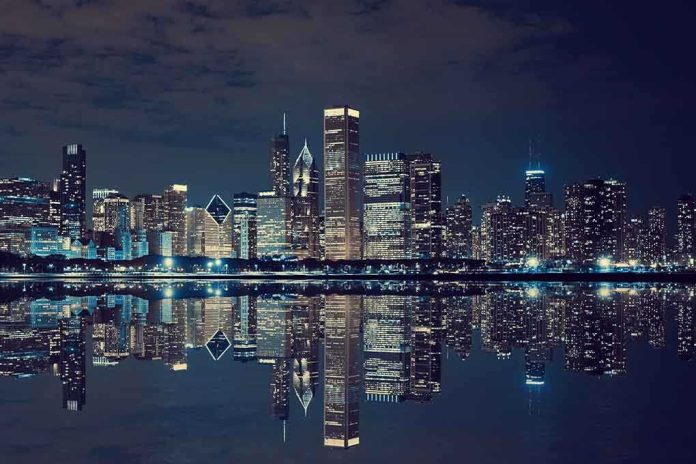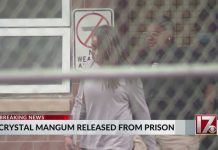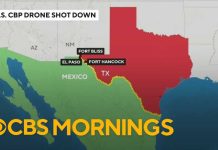
The potential invocation of the Insurrection Act by President Trump to address Chicago’s crime rates raises significant constitutional questions and federal-state tensions.
Story Highlights
- Trump proposes using the Insurrection Act to curb crime in Chicago.
- Federal intervention is contingent on Governor Pritzker’s request for help.
- This move could set a precedent for federal involvement in state matters.
- Potential military presence in Chicago raises civil liberties concerns.
Trump’s Proposal: A New Approach to Urban Crime
President Donald Trump has suggested invoking the Insurrection Act, a rarely used law, to address crime in Chicago. This proposal, which hinges on Illinois Governor J.B. Pritzker formally requesting federal assistance, marks a significant potential shift in how urban crime is tackled. The Insurrection Act, historically used for civil unrest and insurrections, would allow federal military forces to intervene in local law enforcement matters.
This unprecedented suggestion underscores the continuing political tensions between Trump and Pritzker. Their fraught relationship dates back to Trump’s previous presidency, where clashes over policies such as the COVID-19 response were frequent. Pritzker, a prominent Democrat, has been a vocal critic of Trump’s administration, often opposing federal policies perceived as overreaching.
Constitutional and Legal Considerations
The potential use of the Insurrection Act in Chicago raises profound constitutional and legal questions. The Act, which allows the president to deploy military forces domestically, is typically reserved for severe disturbances. Legal scholars debate its applicability in addressing urban crime, which traditionally falls under state jurisdiction. The Posse Comitatus Act generally prohibits military involvement in civilian law enforcement, adding complexity to Trump’s proposal.
Federal intervention without a state governor’s request challenges established federalism principles, potentially leading to legal battles over state sovereignty. Furthermore, the militarization of law enforcement functions poses risks to civil liberties, with concerns about the military’s role in democratic societies.
Implications for Chicago and Beyond
For Chicago, the potential presence of federal military forces raises concerns about community impacts, particularly in neighborhoods already experiencing high crime and intensive policing. Historical instances of military deployment in urban areas suggest that while short-term order might be restored, long-term community relations could suffer.
If successful, invoking the Insurrection Act for urban crime could set a precedent for federal involvement in other cities, expanding executive power and possibly normalizing military presence in American cities. This could fundamentally alter the balance of state and federal powers in public safety and law enforcement.



